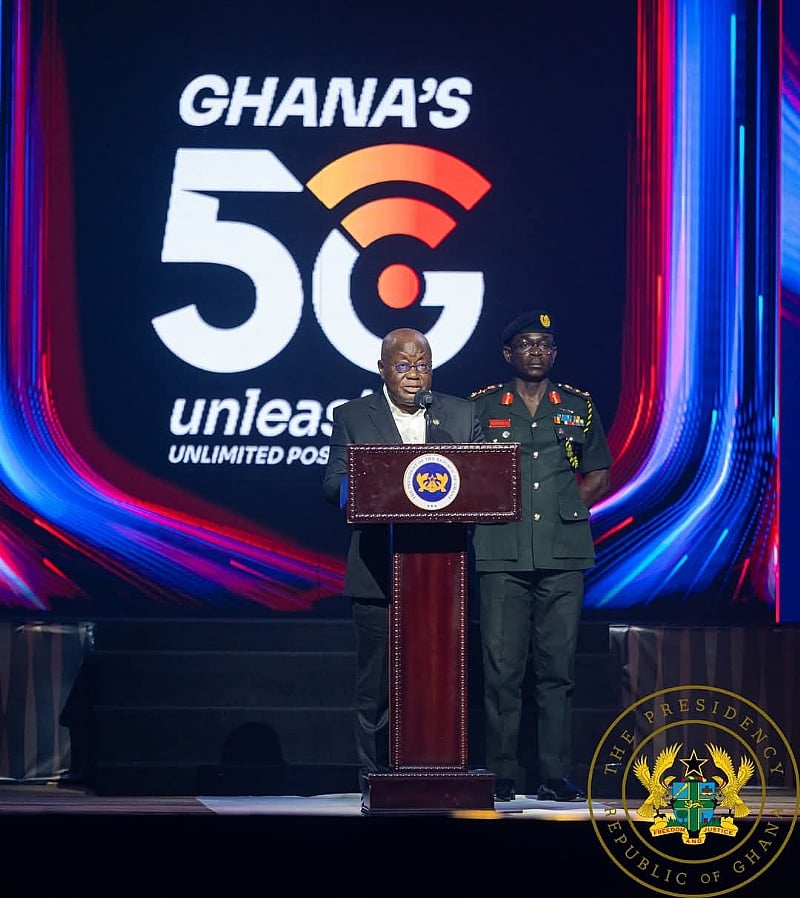On Friday, President Nana Addo Dankwa Akufo-Addo officially launched Ghana’s high-speed 5G service, marking a pivotal moment in the nation’s ongoing digital transformation journey. In his address, he underscored the significance of this development, emphasizing that the implementation of high-speed 5G services is a testament to Ghana’s commitment to ensuring widespread internet connectivity. He noted that reliable internet is crucial for fostering economic productivity and growth in the nation by providing domestic businesses with the necessary tools to expand their opportunities. This rollout symbolizes a strategic move towards establishing Ghana not just as a digitally connected country but as a burgeoning hub for digital economic activities.
The President articulated a broader vision associated with the introduction of 5G, framing it as a key driver of the country’s digital economy aspirations. He asserted that 5G technology is not merely about faster internet speeds but represents a fundamental shift in connectivity that includes integrating advanced technologies such as the Internet of Things (IoT), artificial intelligence (AI), and data analytics into everyday life. This integration is believed to impact several vital sectors such as healthcare, education, and agriculture, enhancing economic productivity and strengthening the overall connectivity landscape in the country.
The rollout of 5G services is being led by Next Gen Infraco (NGIC), the premier provider of wholesale 5G infrastructure in Ghana, which has partnered with global tech leaders like Nokia, Radisys, and Tech Mahindra. President Akufo-Addo recognized NGIC’s critical role in constructing a robust 5G backbone that enables telecommunications providers to offer reliable and high-speed services across Ghana. The objectives of this partnership align with Ghana’s Digital Agenda 2030 and the African Union’s Agenda 2063, reflecting a transformative vision for the nation’s digital future.
At the launch, themed “5G: Accelerating Ghana’s Digital Transformation,” NGIC laid out its goals for creating the infrastructure necessary for ubiquitous 5G adoption, thus driving innovation and inclusive economic development. This can usher in new opportunities across various sectors, including healthcare, education, and commerce, by leveraging the capabilities that 5G provides. As the framework for a digitally empowered nation comes into place, the enhancement of connectivity is expected to align with the nation’s efforts to modernize and digitize its economic framework.
In conjunction with the 5G rollout, President Akufo-Addo assured the public that there would be a strong focus on robust cybersecurity and data privacy standards to foster a secure digital environment. He highlighted the importance of extending this technology to underserved rural areas, acknowledging that enhancing connectivity in these regions is a priority for the government. By the year 2026, comprehensive plans are aimed at ensuring that even those in remote locations gain access to high-speed internet services.
Mrs. Ursula Owusu-Ekuful, the Minister of Communications and Digitization, further elaborated on the initial phase targeting urban centers of Accra, Kumasi, and Takoradi for deployment. She expressed optimism about the potential of 5G technology to empower micro, small, and medium enterprises (MSMEs) in Ghana. By leveraging better connectivity, these enterprises will be able to access new markets and improve their operational capabilities, ultimately contributing to a more vibrant and resilient economy. Overall, the launch of 5G services signifies a major leap towards a digitally inclusive future for Ghana, with far-reaching implications that resonate across various sectors of society.


